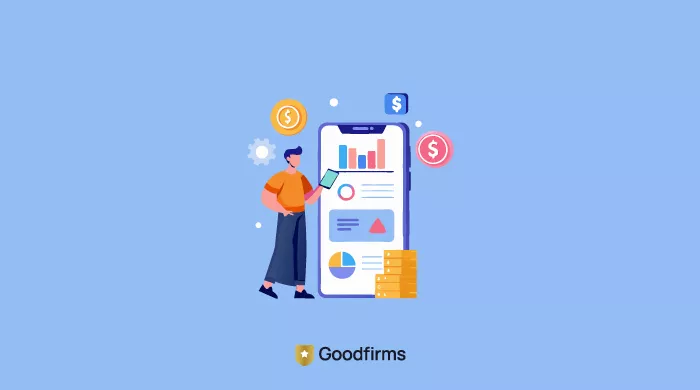Apps are the way we live today. With the Play Store brimming with 3.8 million apps, the competition is cut-throat. All the fiasco around apps from the user perspective also makes it an undeniable need for business growth. Whether this presence is established by a responsive website, native website or a Web App, the choice determines the return of investment.
Web Apps are not unheard of and have gained a lot of traction in the market. Giants like Google run their Google Docs and Gmail as a Web App. For the users, something that runs on the Mobile phone in a highly fluid and performance-oriented manner is an App.
Web Apps and Mobile Apps are poles apart with respect to development, deployment and even use. But what Web Apps are good at is a “CON” as they offer supreme performance that is as good as the Mobile Apps; while actually, they run in the browser of the Mobile.
This article is a reply to the unanswered question for ages – “What are the main differences between a mobile app and a web app and which one is better?” In this post, we have listed the differences and compared these two types of products thoroughly. So if you are interested in finding out the same, the article is written just for you.
Differences and Advantages Revealed!
• Operational difference
Mobile apps are primarily categorized as Native or Hybrid Apps. While the native Apps work on a particular mobile platform, the Hybrid Apps offer the same experience across multiple platforms. The Mobile App needs to be downloaded and stored on the Mobile. It needs to have access to native resources of the mobile phone like camera and GPS. The native App can inherently access the resources of the device but for a Hybrid App to get access to use the resources, it needs to act as a Web App.
Web apps are deployed in a way to act like the Mobile Apps but they save you the trouble of downloading, installation and free the storage of the device without compromising on performance. Purely responsive by nature a Web App runs in the browser of the device. The search bar of the browser turns red and locks till the time you are using the Web App. This is the reason users are often confused about whether they are using a Mobile App or Web App.
• Dependency on the Internet
Web apps will run only when the device user has access to active internet connection. So their dependency on the internet is more as compared to mobile apps. Today we use Mobile Apps that are capable of running in an offline mode also. Although not all features of mobile App will run in absence of the internet but they do respond well.
• Promptly updated
Have you noticed a Mobile App asking to be updated again and again? At times the developers push a security patch, a feature update or bug fix and for this to reflect, the user needs to upgrade the Mobile App.
Web Apps are automatically updated as they work on an active internet connection over a web browser. Every time you start a Web App, you know it’s fully updated.
• Development basics
If you are looking for a flashy, superfast and feature loaded App, Web Apps may not be for you. Mobile apps come with a price tag higher than Web Apps. The reason for this is the coding aspects. The code of the Mobile App is built from scratch and for the native platform generally. Having its very own ecosystem of IDE and programming languages, Native App development requires a lot of effort and time to deliver an App that is fully functional, feature rich and works in full throttle.
Web apps tend to be thriving on easy and quick to develop code using JavaScript, CSS, and HTML5. Without any IDE and SDK support, the Web Apps are not built from scratch but are built on top of some coding templates. Use of templates reduces the time and effort that goes into coding a Web App. But working on templates limits the feature capacity of a Web App and are not comparable to a Mobile App.
When it comes down to pick the Mr. Right, it is generally an open choice depending up the factors like App budget, timelines, features required and more. Here is the clear picture of the two head-on competitors Mobile App and Web App. It will help you decide what is right for you.
WEB APPS
A Mobile App makes sense over a Web App when you are looking forward to using the app regressively for marketing activities. Its inherent pros and cons are:
Pros:
• Availability
If a user has an active internet, a Web App can be accessed over the browser immediately independent of the device platform user is on. For a Mobile App, the download and installation of the App create a barrier to enjoy instant access.
• Compatibility
Business often faces the churn whether they should go for native or hybrid Apps. If they do not have enough budgets, they might stick to native options. Even then, they need to decide which platform App will they get developed first – iOS, Android or Windows. Amidst the scale of confusion, Web Apps are a sigh of relief. A single Web App can be used on multiple platforms without any separation of code for each targeted device. The Web Apps are also easy to integrate with the existing mobile technologies.
• Upgradability
Web Apps are a dynamic version of the Mobile App. They are flexible enough to be updated with respect to design changes or security upgrades. All the codes need to do is push the compiled code to the Web App and it will reflect online instantly. The Mobile App upgrade becomes a tedious process as it requires the update to be pushed to the App store and then users need to upgrade the App before the changes are reflected.
• Increased Visibility
Webs Apps are quick and easy to find as they are there in the search results of a search engine. If the Web App is keyword optimized enough, the users will come across it easily as compared to the App store. The Mobile Apps are limited to the online stores and making them visible there is no cake walk.
• Shareable
Users can share your Web App by sending the Web App URL. They can post its Link on social media, share among friends by sending the link and other means but the Mobile App cannot be shared like this. The person who wishes to use it needs to go to the App store or Play Store to download the same.
• Reaches more users
A native Mobile App can reach either 2 Billion Android users or one billion iOS users across the globe. The Web App with a single code base can target both the Android and iOS users as its usage is independent of the platform.
• Apps for eternity
The shelf life of Mobile Apps is reducing drastically edging business to find other avenues to stay in touch with the users. The developers have tried everything like customization, feature packing, lightweight, speed and what not but the average shelf life of Mobile App hovers around 30 days. While for a Web App, there is no shelf-life, the App is just always there.
• Time and Cost
Web App is a perfect way to save time and cost of development and as it can be accessed across multiple platforms without any change in code, the Web Apps are a near perfect way to save some dollars. With Progressive Web Apps around the corner, Web Apps are changing forever and are becoming an even stronger competition to the native Mobile Apps.
Cons:
• Normal Web Apps cannot work offline but the new age Progressive Web Apps do.
• The Web Apps are comparatively slower than the competitor and even the feature set is not very competitive. But the progressive apps are growing rapidly supporting the extreme features.
• Quality and security standards of a Web App may be compromised to save cost as they do not have to go through a check via play store or App store.
MOBILE APPS
Although the Web Apps weigh heavier in terms of flexibility, it does not mar the popularity of Mobile Apps. Read the complete pros and cons of mobile apps below:
Pros:
• Interactive element
The gaming apps need to be more interactive and this is why most of the gaming apps are mobile Apps and not web apps which cannot handle a lot of featured interaction.
• Personalization
Mobile Apps make a place in the device memory and that supports personalization. If a user decides to stick to the App, he/she can take advantage of personalization which is not possible with Web Apps.
• Complex operation
A Web App cannot handle complex operations like manipulating data, creating reports on basis of that data. These processes require the Mobile App always.
• Offline support
A Mobile App can perform best even in the absence of an active internet while the Web Apps would not even often. With the advent of PWA (Progressive Web Apps) offline access to data is also being made available.
Cons:
• Higher development cost and duration.
• Cross-platform compatibility issues
• Expensive to upgrade
• An app needs to be approved by Play Store or App store before it is published.
CONCLUSION
Although the Web Apps win over Mobile Apps on various aspects, choice purely depends on the feature requirement of the App that it must exude to the users. The article laid out the cards right in front of you. The choice is yours. Now, all you need is a curated list of top app developers to consider before divulging into the in-depth process of creating apps.








